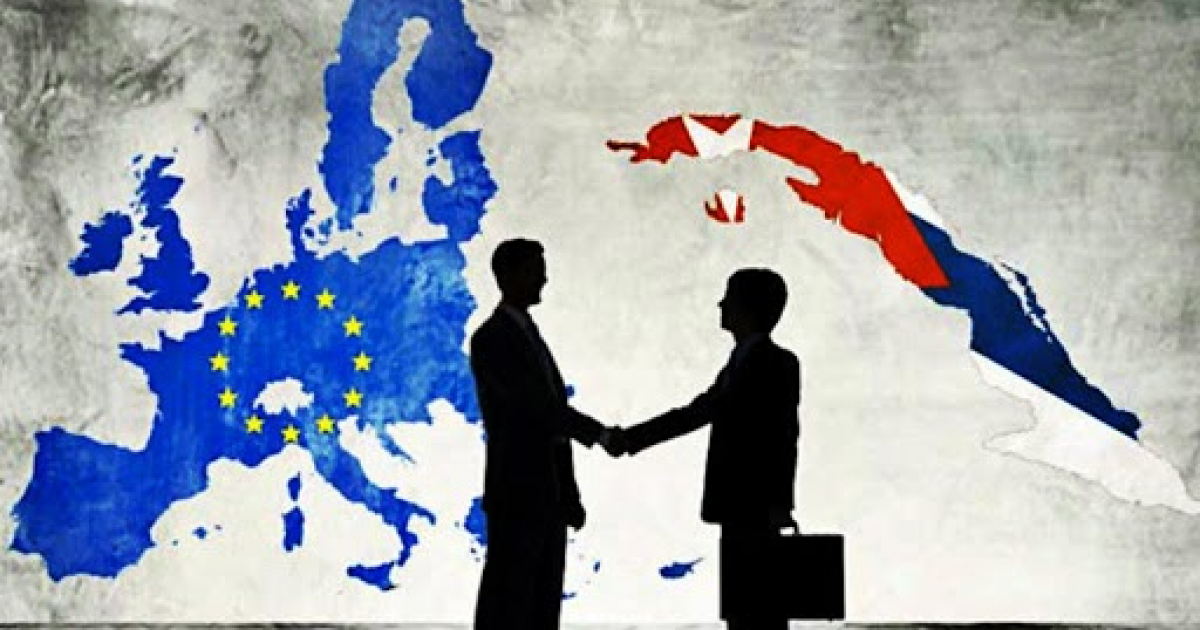
Europe has taken a turn in its foreign policy and has entered into "discreet, but regular" conversations with the opposition, civil society and Cuban emigrants, he toldCyberCuba an official of the External Action Service of the European Union (EU) who disassociated the new style from thehunger strike of the San Isidro Movement, theprotest by intellectuals and artists before the Ministry of Culture and the arrival ofJoe Biden at the White House.
"For some time now, we have been talking with different actors in Cuban society and politics," added the official, who refused to be identified; and clearly demarcated the European dialogue from "the recent events in Havana and the North American elections," although he stressed that the issues of human rights and democracy are part of the European agenda with Cuba.
In June, the EU changed its position towards Havana, eliminating the singular qualification of considering Cuba a "single-party democracy", since then, there have been discreet contacts with opponents, emigrants and civil society activists, which have intensified in the last two months.
His version was corroborated by José Daniel Ferrer (UNPACU), Manuel Cuesta Morúa (Arco Progresista) and Juan Antonio Madrazo Luna (Citizen Committee for Racial Integration) who confirmed the previous meetings with EU representatives in Havana and Latin America and announced that, in the coming days, there would be a meeting with five opponents and anti-Castro activists, without specifying the exact date.
"We have an invitation in a few days to a hearing on the Dialogue Agreement of the European Union with the Castro regime. Several opponents are invited, I think there are five of us, and also the Cuban Ambassador to the EU. That's all there is until now. That invitation.", said José Daniel Ferrer, National Coordinator of the Patriotic Union of Cuba (UNPACU).
"It would be the first time, in a long time, that the Cuban government and opponents share a space of non-confrontation, even if it is virtual"; stood out Yaxys Cires Dib, member of the Cuban Observatory of Human Rights (OCDH), who neither confirmed nor denied the contacts with representatives of the EU.
Manuel Cuesta Morúa, of social democratic orientation, was the most concise with a "that's right", without going into further details of his meetings with European representatives in Cuba and whether he will attend the meeting of the five Cuban opponents with the EU and the Castro diplomat.
Juan Antonio Madrazo Luna, which fights for equality and the cessation of racial discrimination, told his interlocutors on the Old Continent about the poverty rates that hit the black and mixed-race population hardest, with less access to better-paid jobs and how the government Díaz-Canel-Manuel Marrero has lost a year of work on the racial issue, despite launching a plan, which has remained just that, an announcement, he concluded.
On November 20, the European Union and Cuba held their second Dialogue on the advancement of the 2030 Agenda for Sustainable Development, held by videoconference and addressed three topics: Climate change, the path towards an inclusive and knowledge-based economy, and health systems and the development of biotechnology in the context of the COVID-19 pandemic, according to European sources.
Cubans and Europeans also analyzed how to align EU-Cuba cooperation activities more closely with the Sustainable Development Goals agenda and how to work together in multilateral forums to continue monitoring and further developing the global agenda in this area.
The bilateral dialogue was preceded by a seminar, where representatives of Cuban and European civil societies exchanged points of view on the advancement of our common development agenda, indicated the EU, which did not identify the participants.
The meeting on November 20 completed the second cycle of the five political dialogues initiated within the framework of the EU-Cuba Political Dialogue and Cooperation Agreement (PDCA), which also cover human rights issues (the last one was held on November 3 October 2019 in Brussels), unilateral coercive measures (last held on November 29, 2019 in Havana) and illicit arms trade and non-proliferation (last held on October 14, 2020, by videoconference), always according to European sources.
At the time of writing this note, the Cuban Government remains silent on thesespecific contacts of the EU with its opponents, emigrants and civil society activists, who join the official bilateral meetings, of which they only publish the reiteration of their old excuse of blaming the United States for the evils that afflict Cubans, including the human rights violations committed by their military and poverty and the inequality generated by the economic crisis and dollarization.
What do you think?
SEE COMMENTS (6)Filed in: